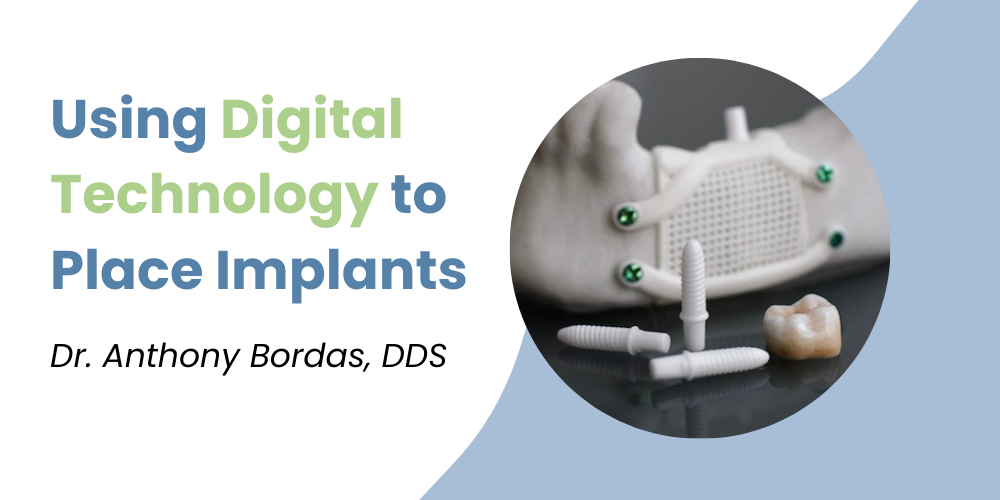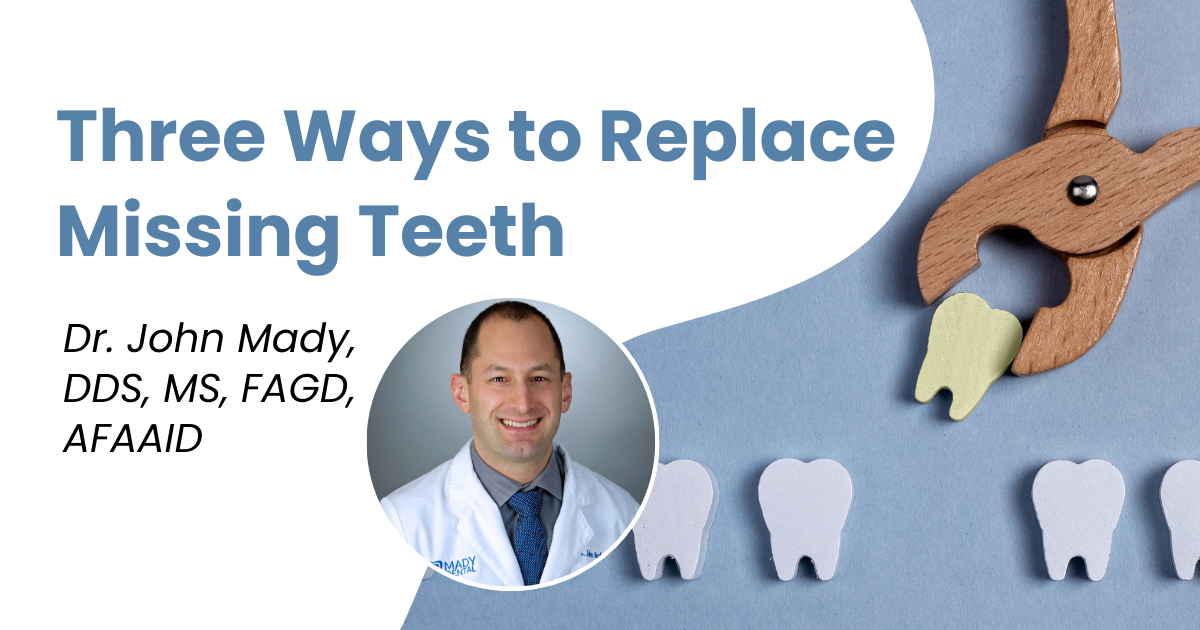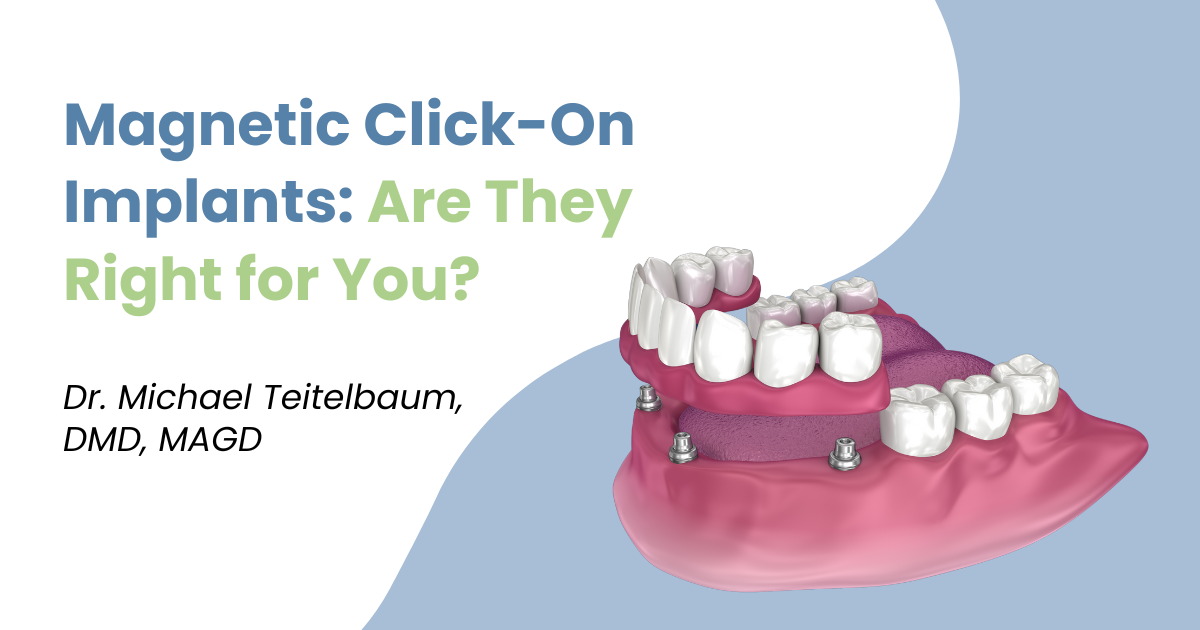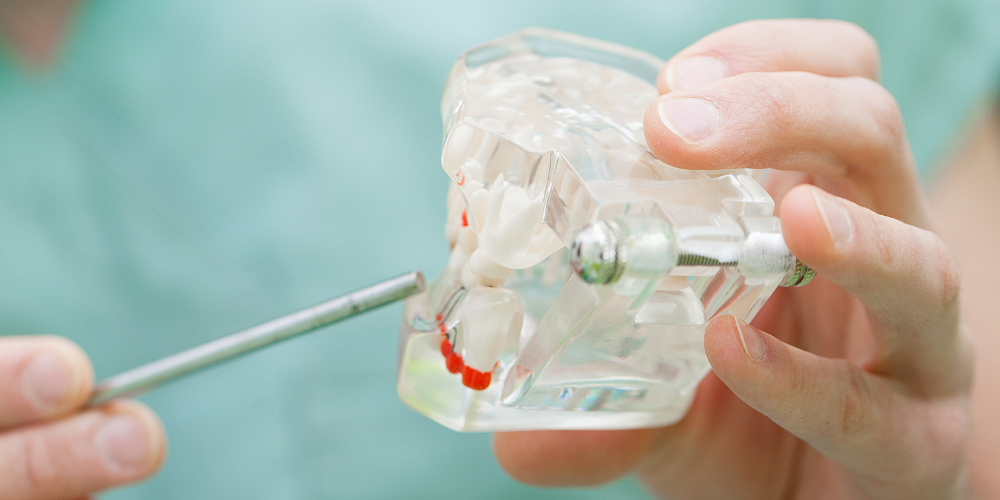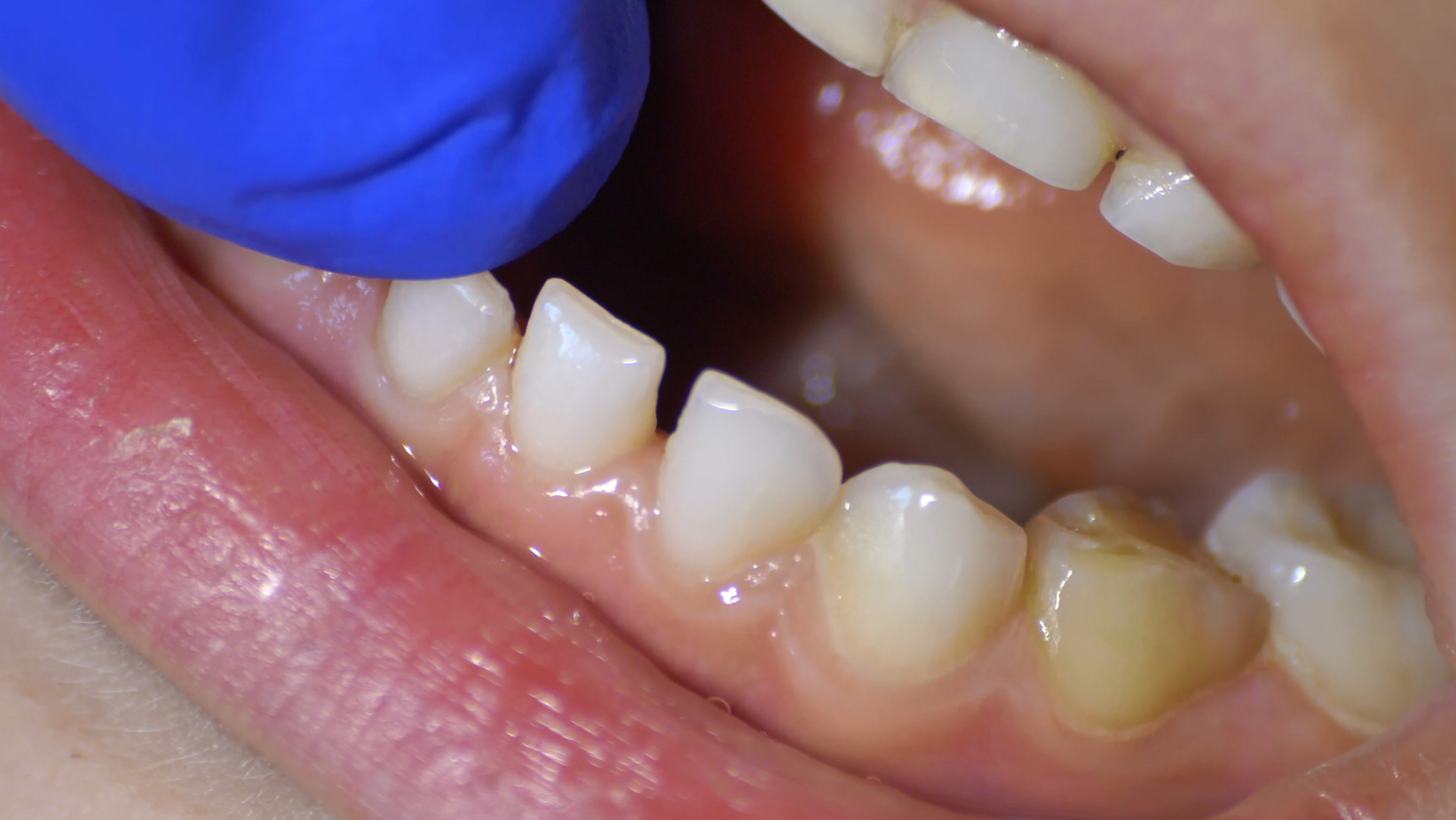When it comes to maintaining bone loss, the ability to chew and enhancing your smile, implants have
become the gold industry standard for treating a litany of oral health issues. But the most common
misconception is the cost associated with an implant. This leaves many patients feeling their dreams of
achieving a perfect, healthy smile are too far out of reach.
If you are looking to replace missing teeth, you have more options than you may think. Fixed dental implants, removable dentures, and snap-in dentures can each be a great fit depending on your specific needs. Find out which is best for you!
If you're missing one or more teeth, read below to learn the three main options you have to replace them.
Topics: Getting started with dental implants, dental implant process, what to know about implants
“Dental Cripples.” It may be politically incorrect, but in my specialty program 30 years ago, this was the way we were taught to think about people with full dentures. Implants were relatively new, and the start of research on “All-on-X” or simplified implant-supported teeth was a year away.
Improving Dental Health: Advanced Solutions for Periodontal Disease and Jaw Bone Challenges
The idea of getting dental implants can be a life-changing decision for individuals suffering from periodontal disease and bone problems in the jaw. Many people mistakenly believe that these conditions automatically rule them out as candidates for dental implants. However, with advancements in dental technology and procedures, this is no longer the case. In this blog post, we will explore the reasons why periodontal disease and bone problems in the jaw do not necessarily disqualify you as an implant candidate and how you can still achieve a fresh start for your oral health.
Topics: Dental implant procedure, Bone Loss, Gum disease
Dental implants have changed how we restore missing or damaged teeth. But what if you have diabetes? Can you still get dental implants? The good news is, yes, you can, but there are a few things you need to be careful about. In this post, we'll look at how diabetes and dental implants are connected and consider the safety, complications, and cautions for people with diabetes.
Topics: Dental implant procedure, Bone Loss, Implant Complications, diabetes
The reason you need a replacement option (dental implants, implant-supported bridge, or dentures) is that missing teeth will affect your smile and your ability to chew, as well as contribute to other potential issues. In fact, many people do not realize how important your teeth are for your overall health. For example, a missing tooth may shift your tooth alignment, result in a bad bite, and weaken the structural integrity of your gums and jaw.
The true sign of optimal oral health is when the mouth is free of disease and the masticatory system is balanced. Your masticatory system gives you the ability to chew, swallow and speak. It includes your jaw, teeth, temporomandibular joints, lips, cheeks, muscles, head and neck. Here's how you can ensure optimal oral health and lasting implant success.
If you're missing teeth, or are frustrated with a continuous cycle of expensive dental problems, you're not alone. Millions of people in the United States have lost one or more teeth due to tooth decay, gum disease, or trauma. Millions more feel discouraged with an uphill physical, emotional, and financial battle against their failing dental health. While there are a number of ways to reinforce failing teeth and replace missing teeth, dental implants often provide the best long-term results and the best quality of life.
Topics: Getting started with dental implants, FAQs, what to know about implants, Credentialed Implant Dentist
Most people probably don’t think that orthodontics (braces) and implants go together, but they can in the right circumstances. Both braces and implants may help prevent tooth decay and gum disease, improve a person’s appearance, and prevent dental injuries. They help build a person’s confidence and improve their smile.
Topics: FAQs, what to know about implants, Dental implant procedure, orthodontics
When getting an implant, the key to success is prevention. Therefore, it’s important to know about the possible issues that can make it harder for your implant to last. Knowing how to care for the implant will help ensure its longevity, avoiding disappointment and frustration. While there are many reasons that an implant might fail such as medications, the placement of the implant, and smoking, here are the top three:
Topics: FAQs, Dental implant procedure, Bone Loss, Implant Complications

